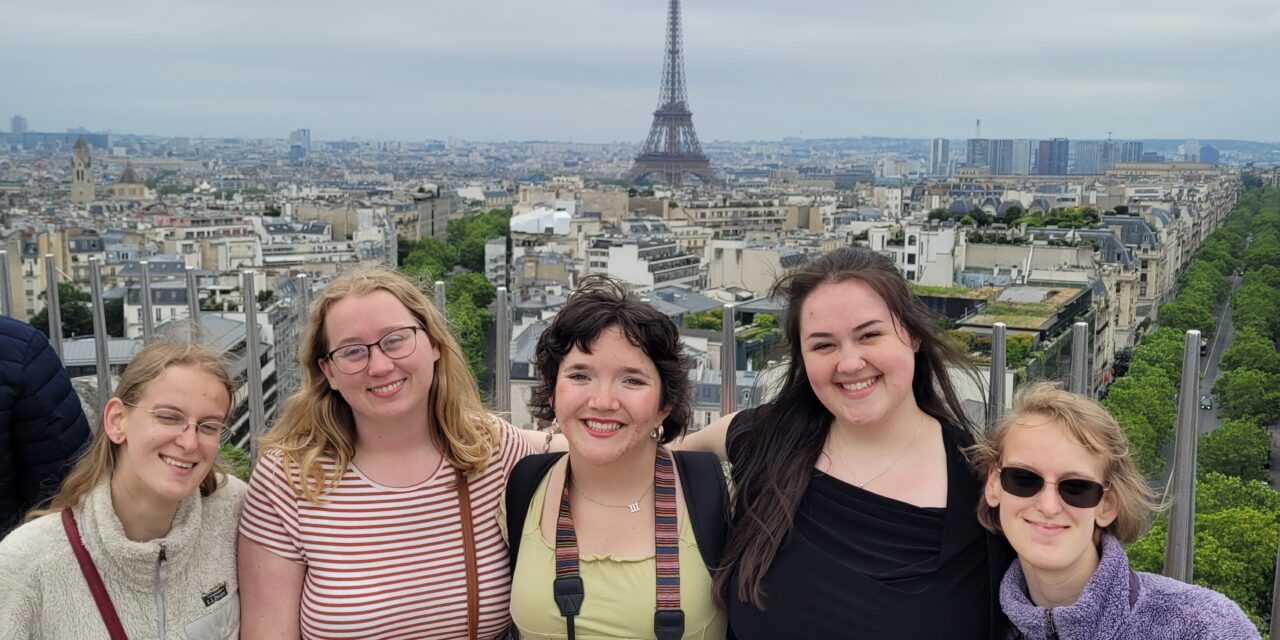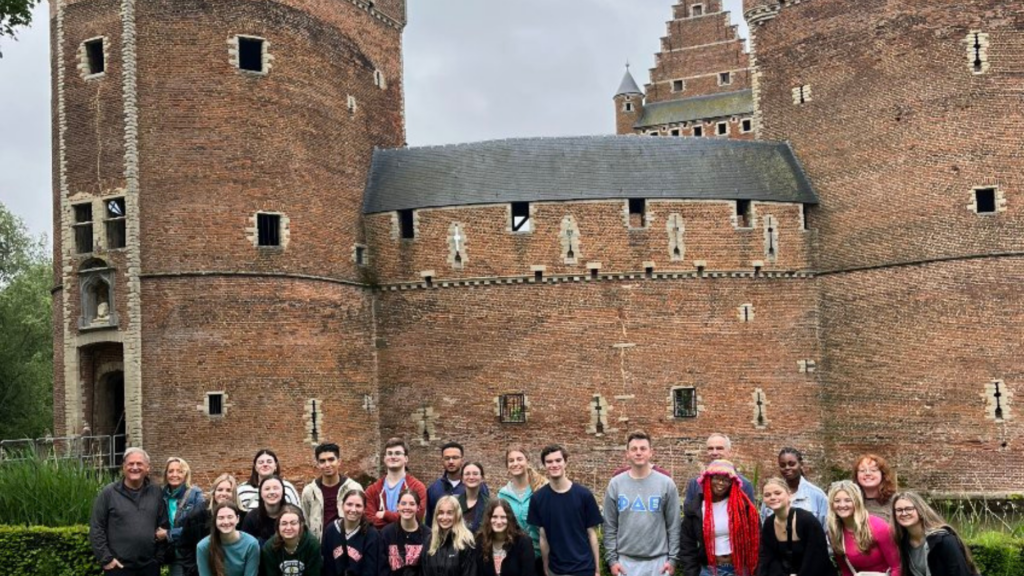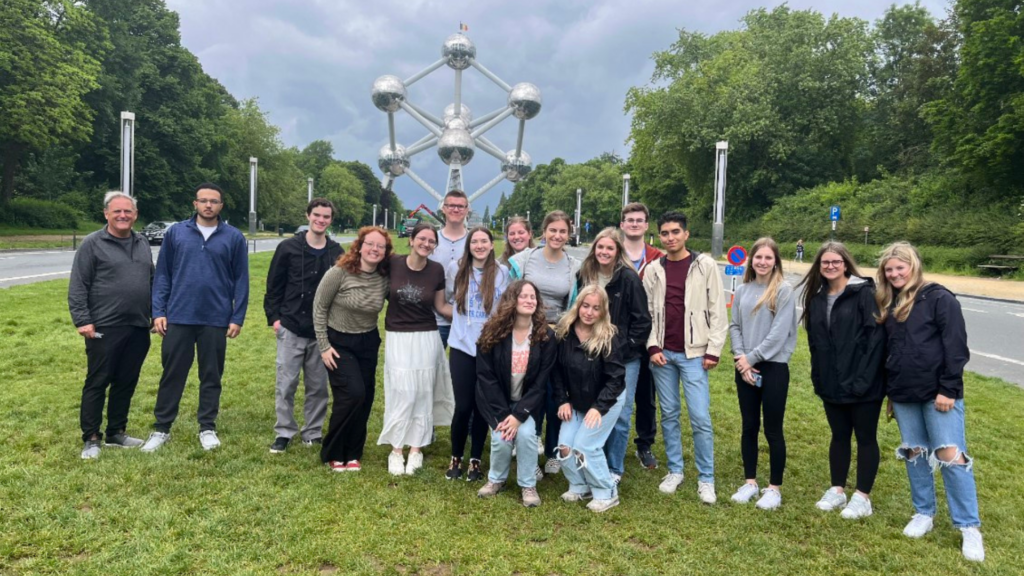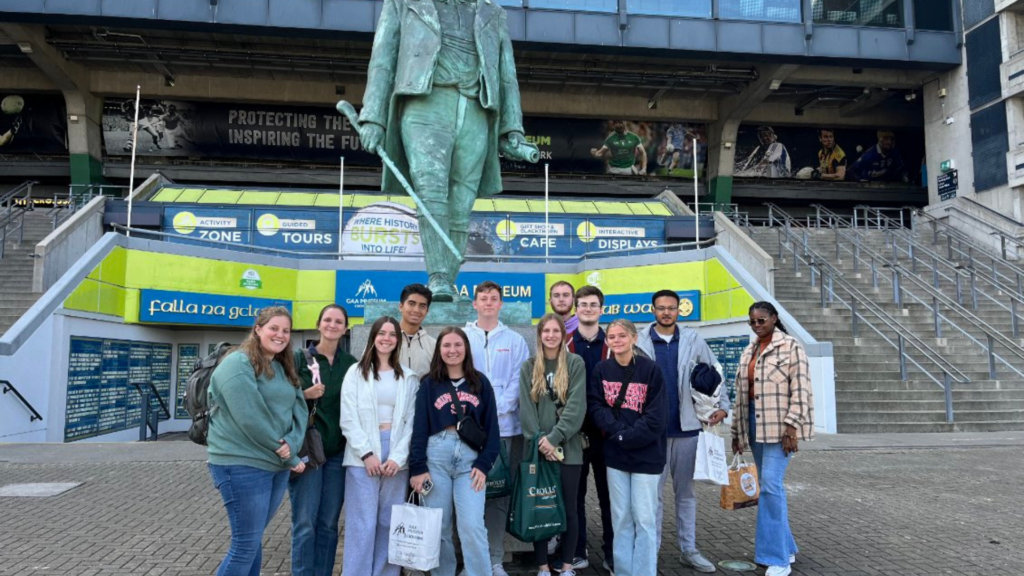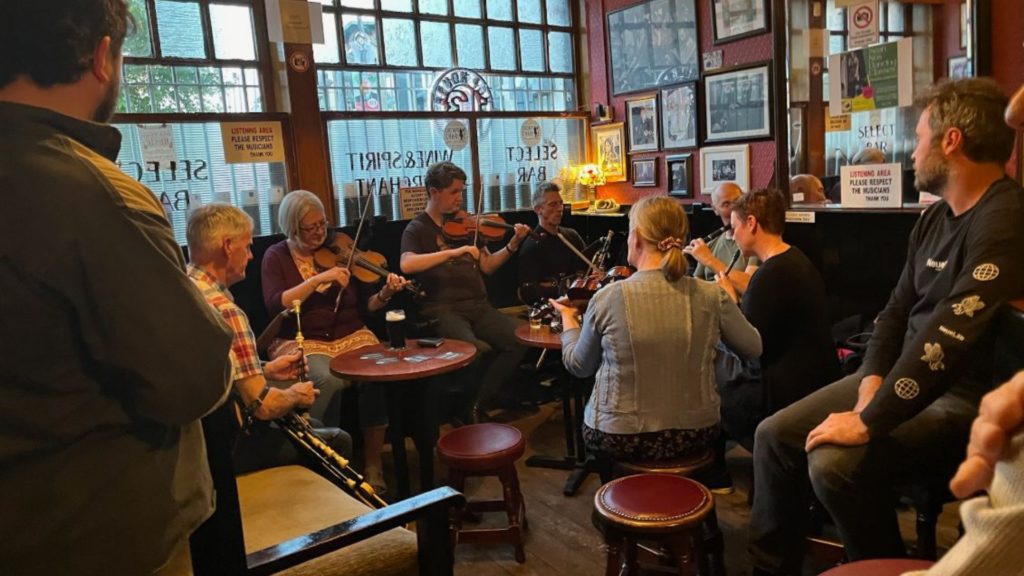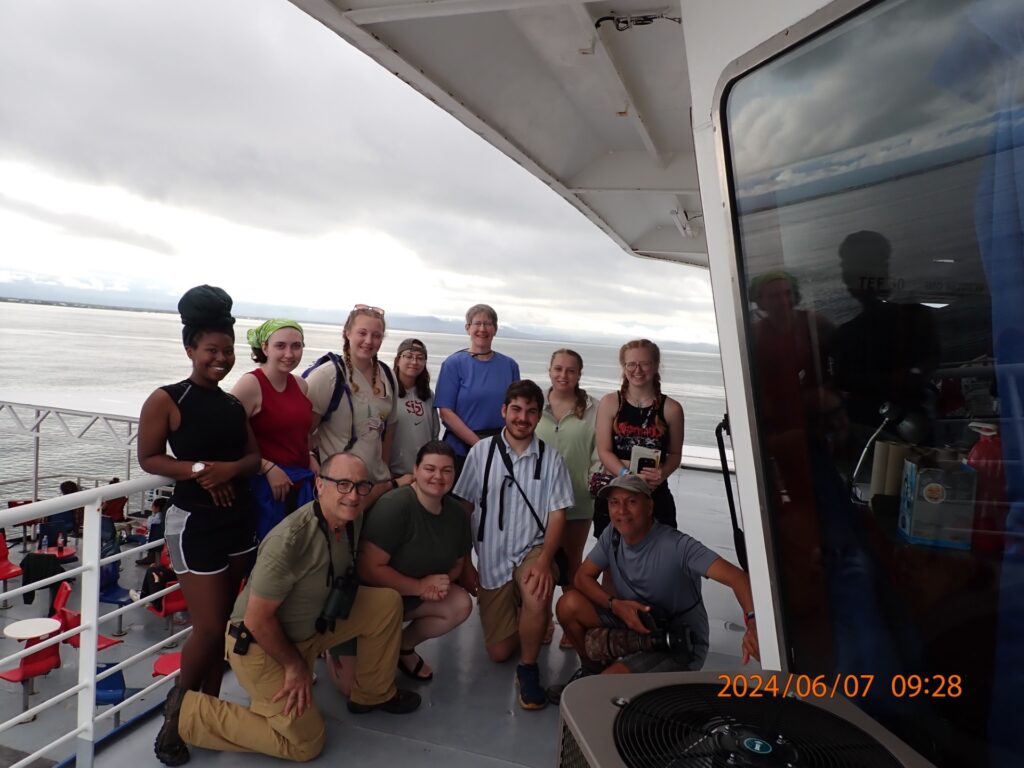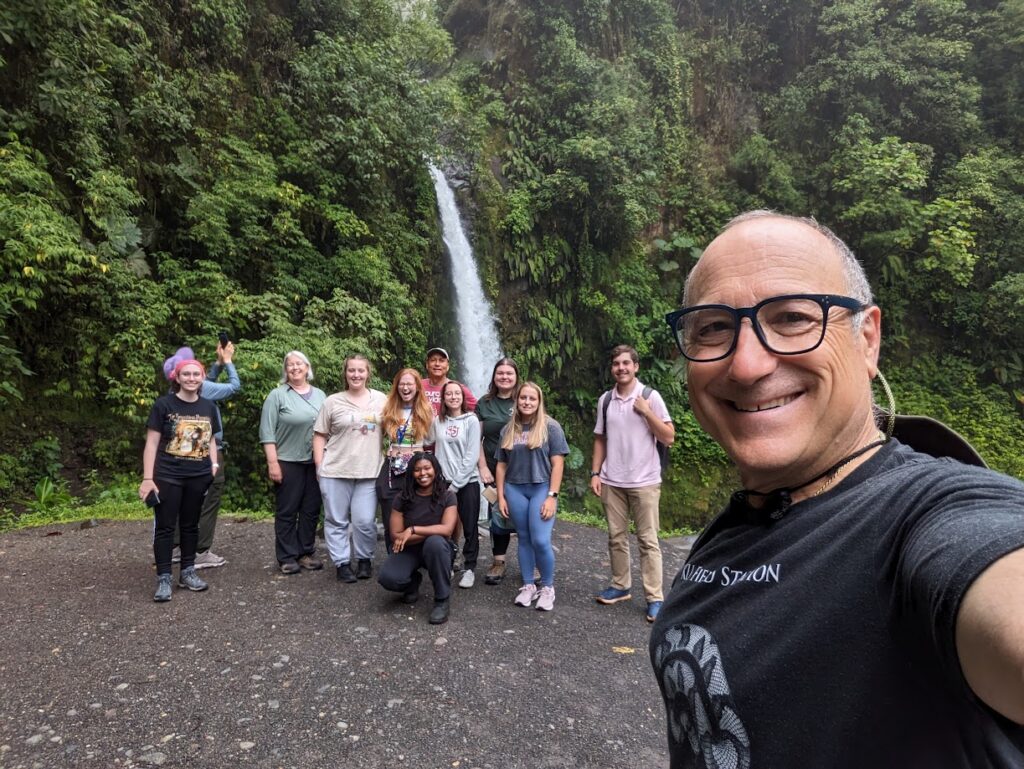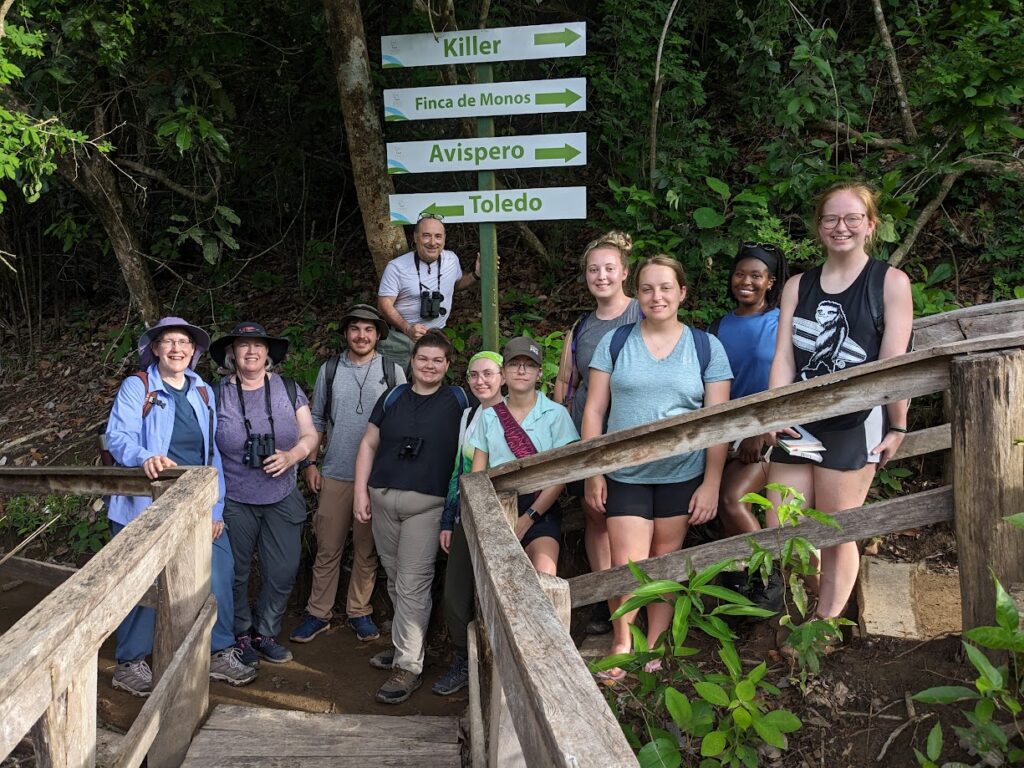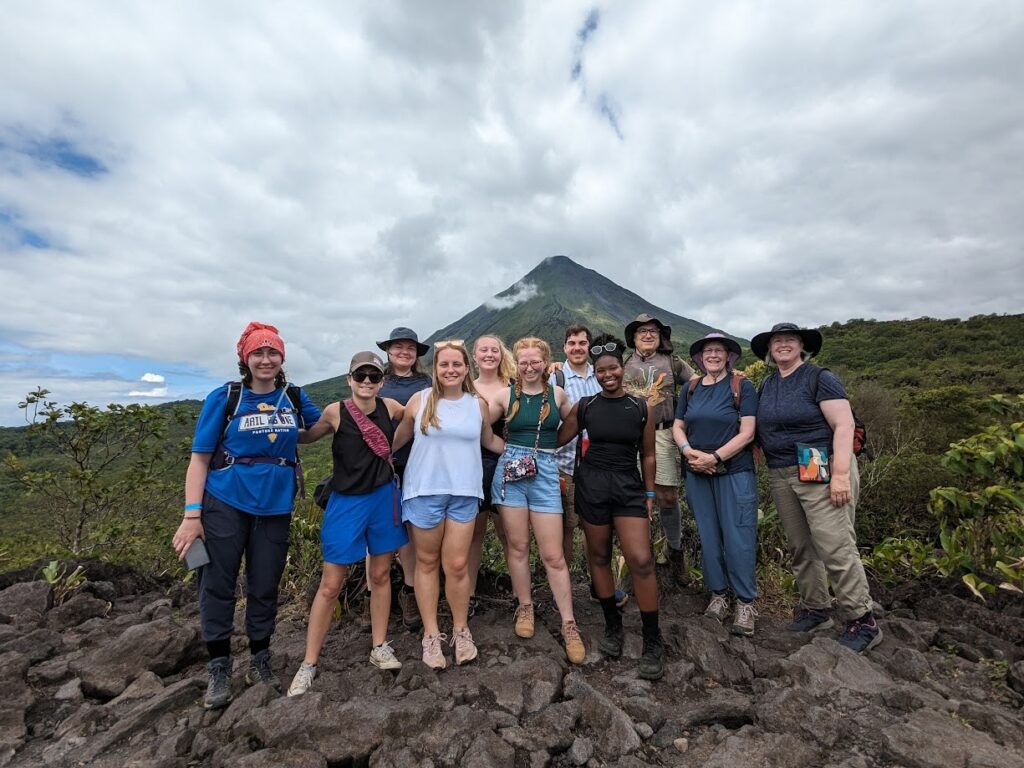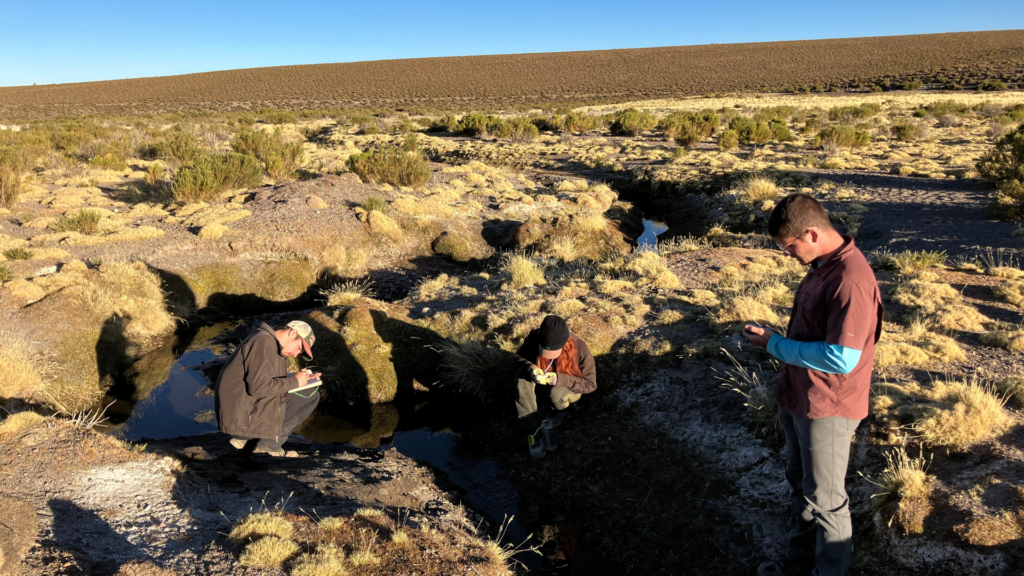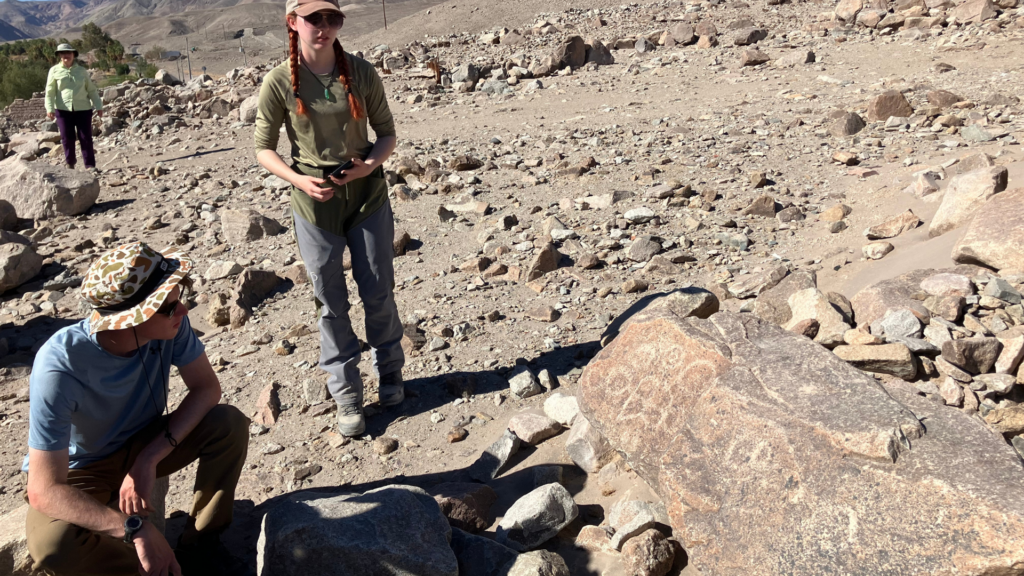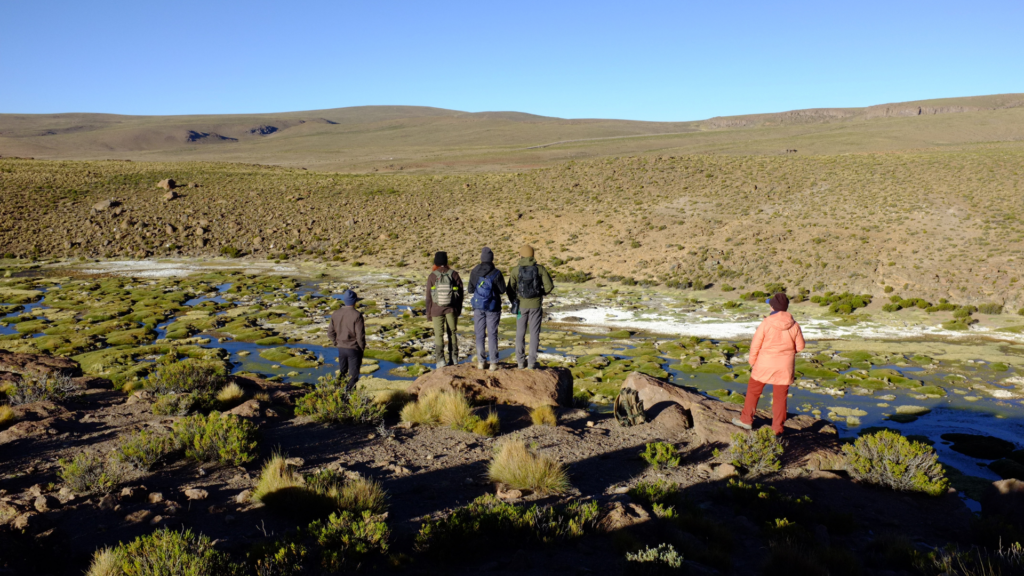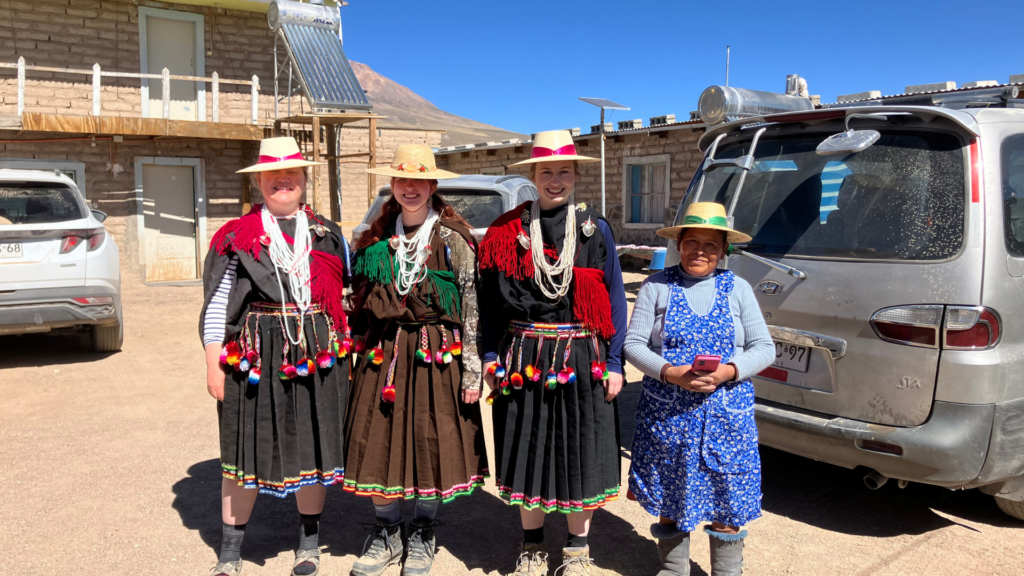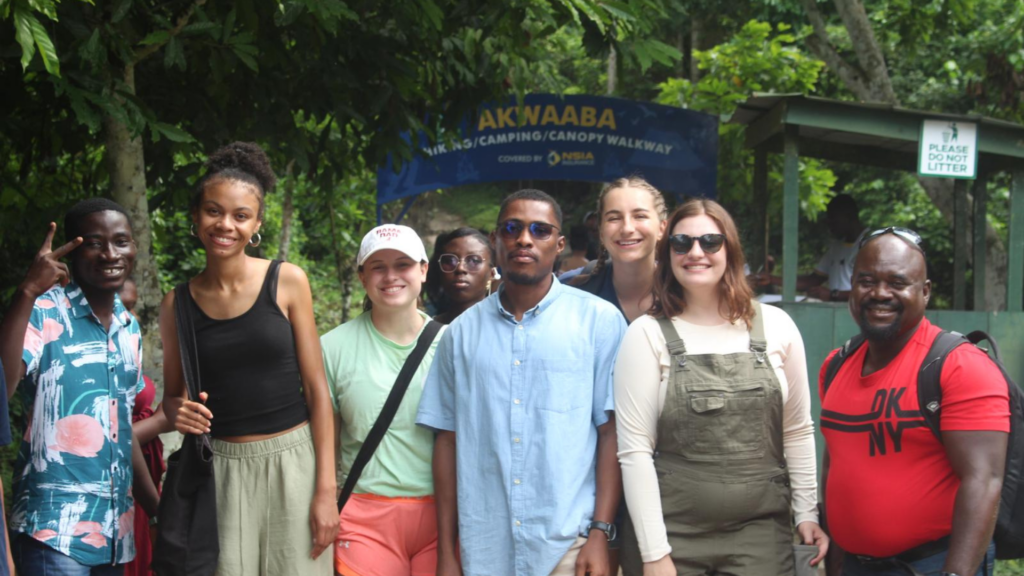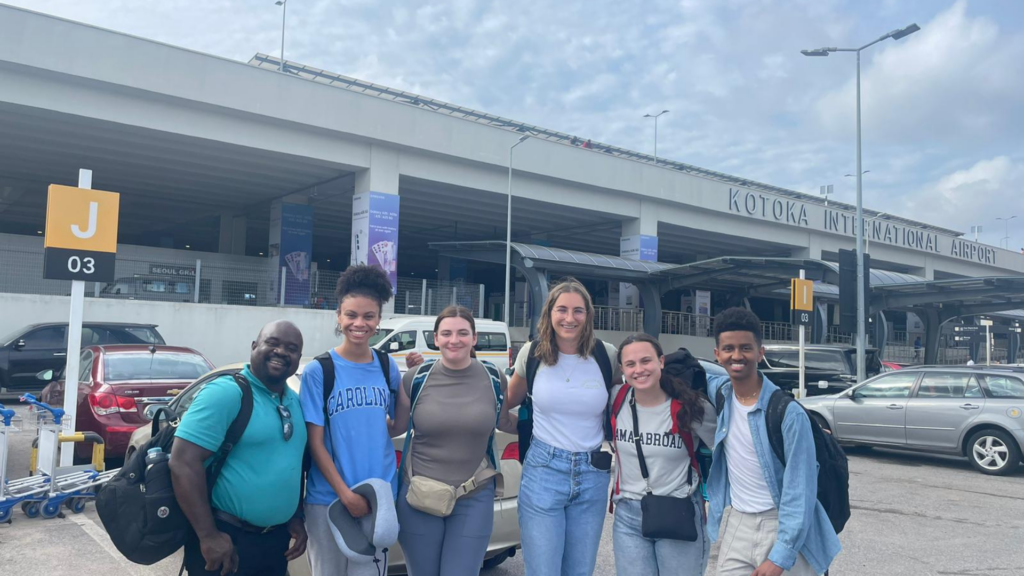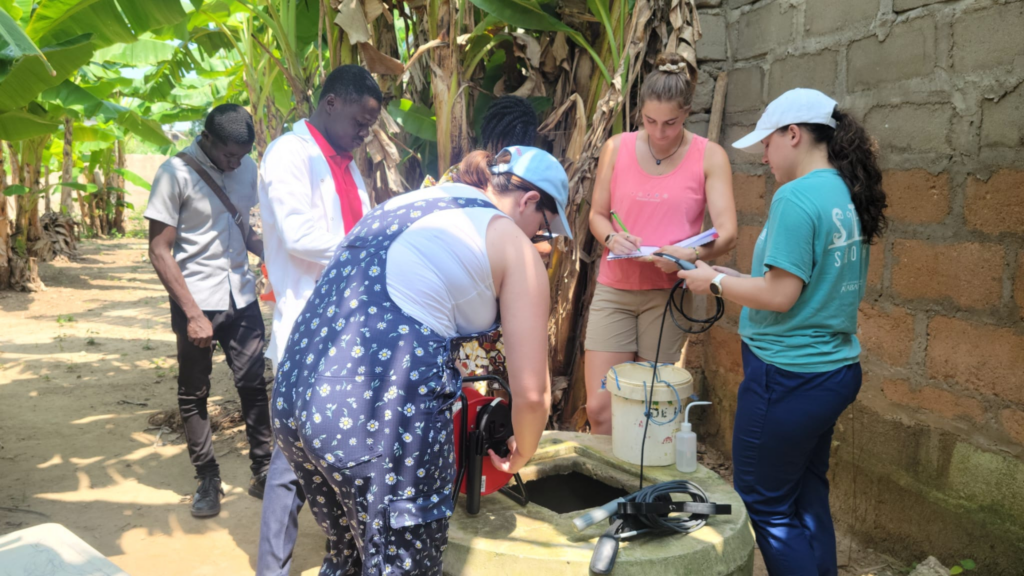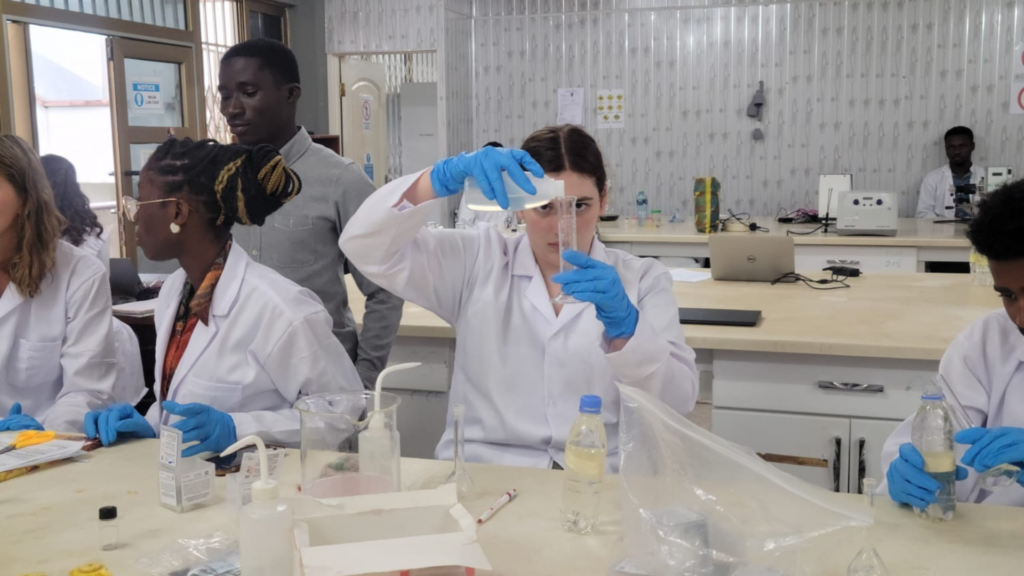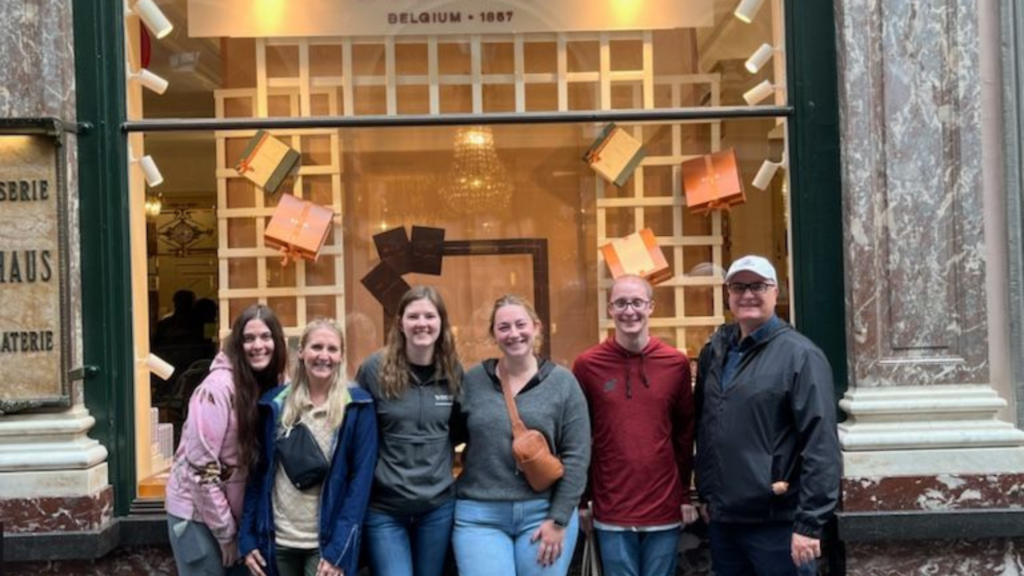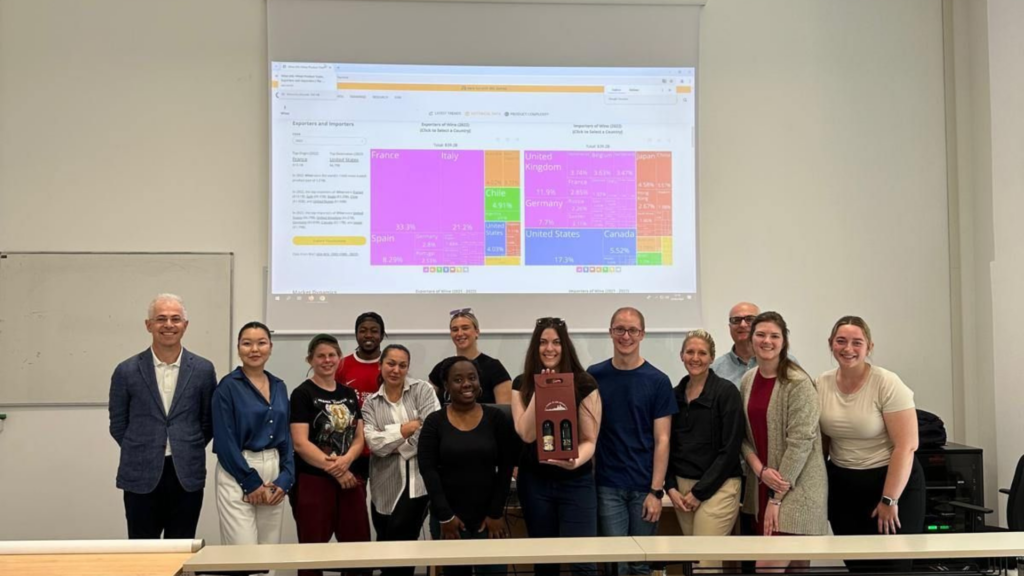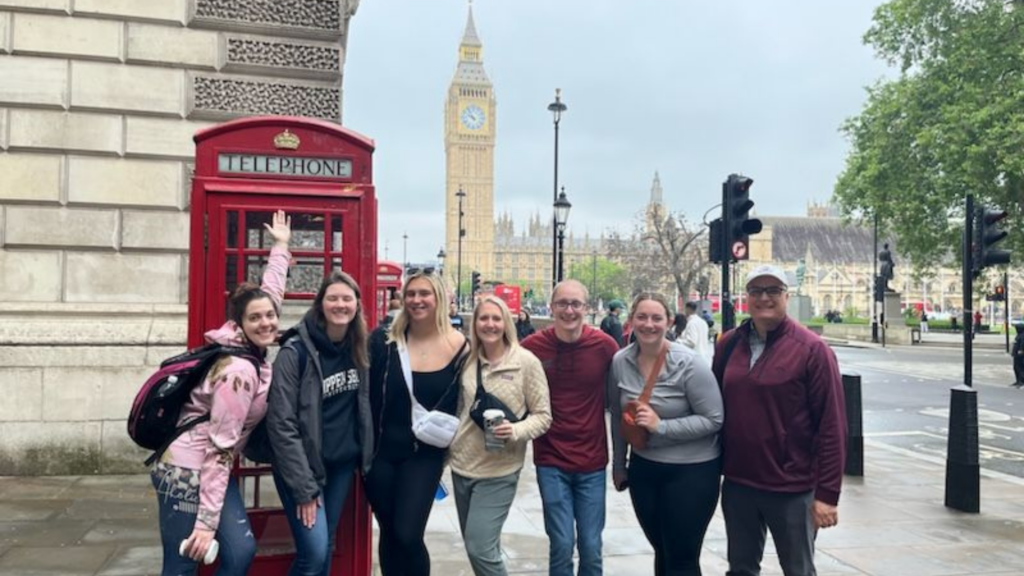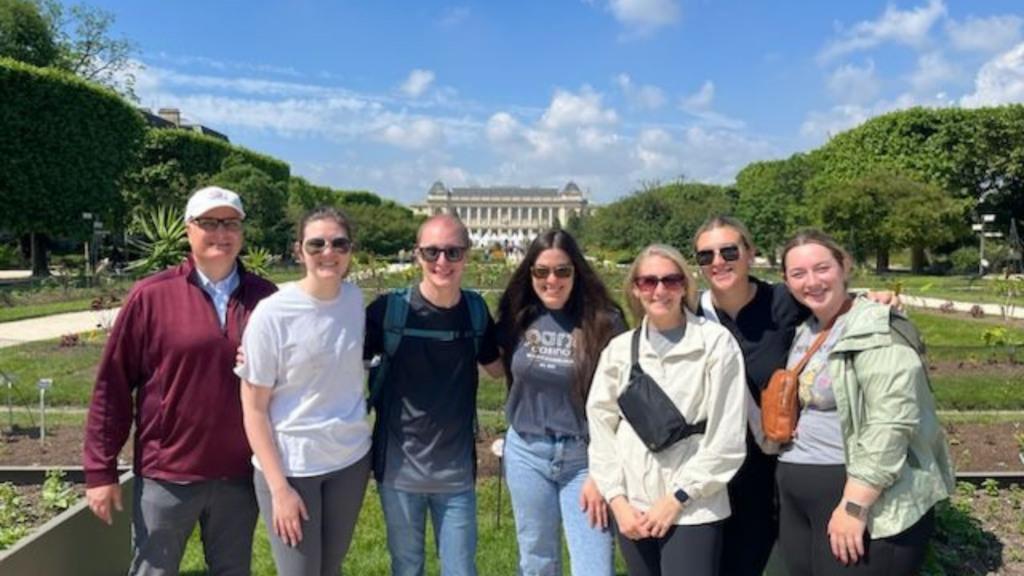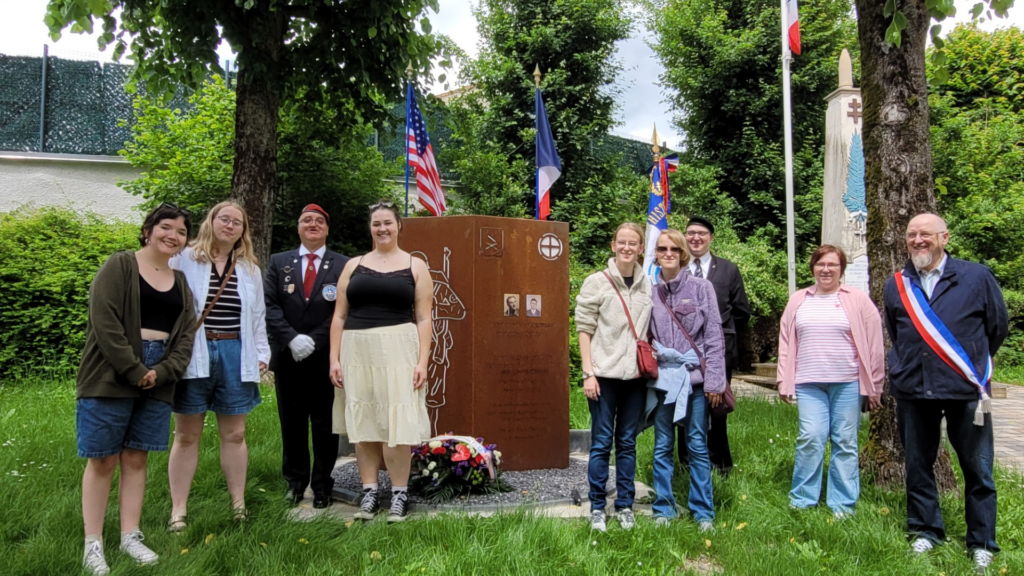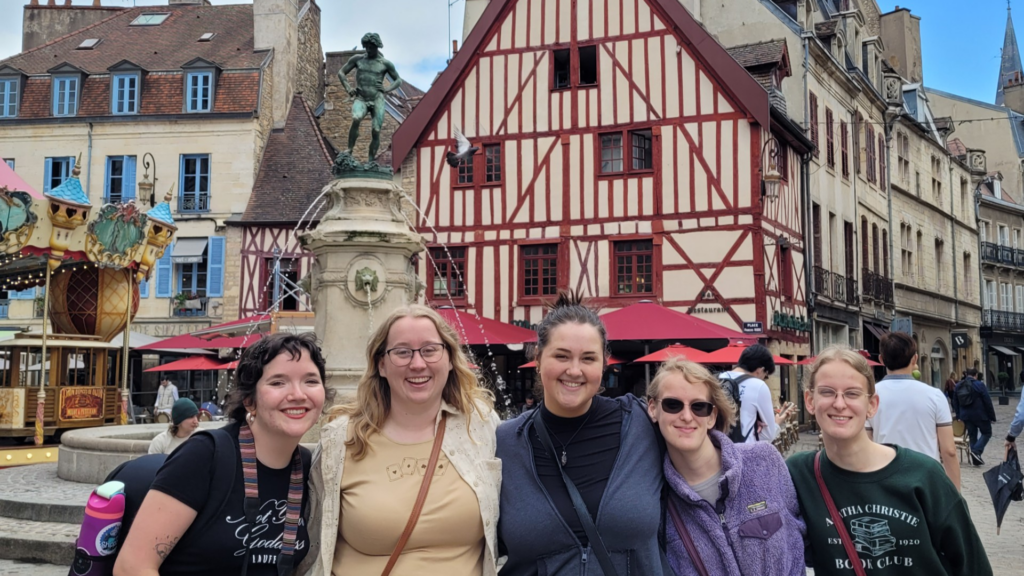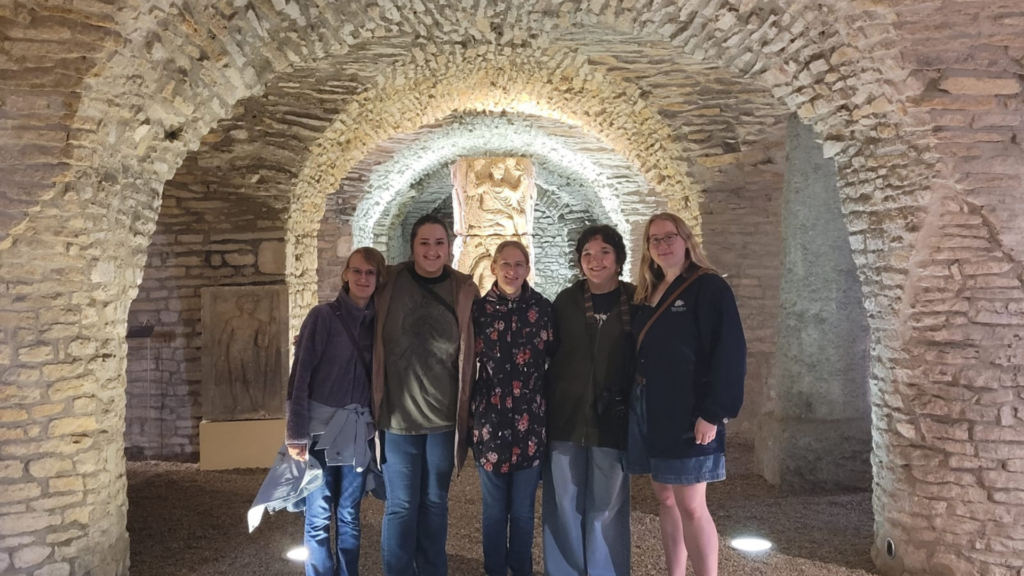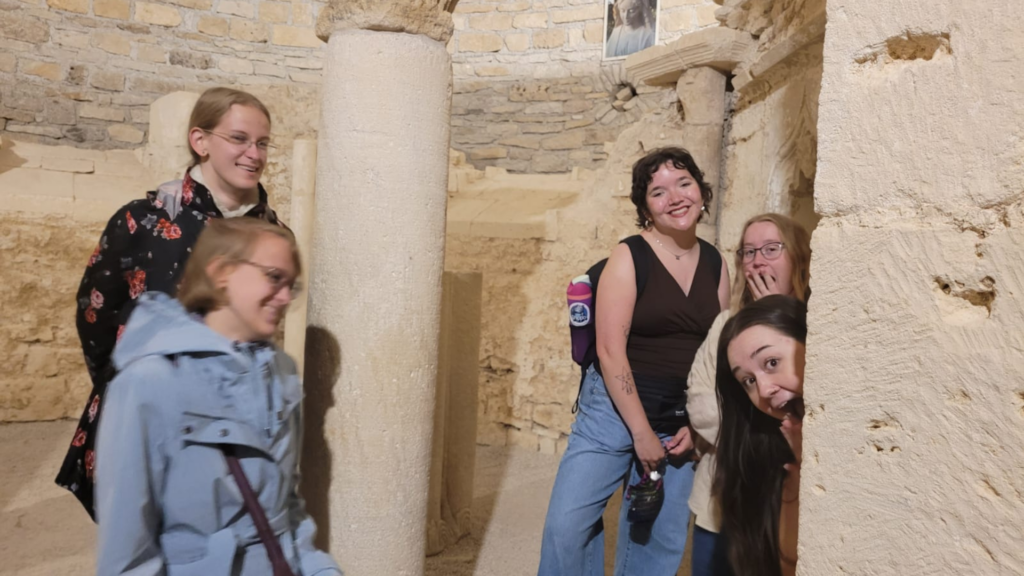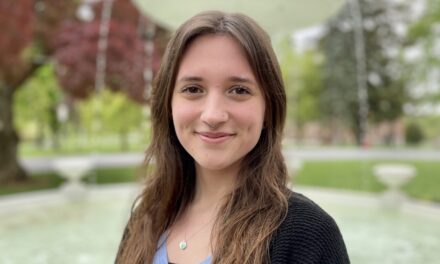Faculty at Shippensburg University are immersing students in exciting learning experiences and leading study-abroad trips for students across various disciplines. Read more to learn about the trips that faculty and students have embarked on around the globe!
Political Science, Europe
Mark Sachleben and Neil Brasher, faculty in the political science department, have been providing study abroad trips to Europe since 2010, with Brasher leading such trips at Ship for nearly 30 years. Sachleben and Brasher’s overall goal has always been to offer an “international experience” to students of all majors who otherwise may not get to study abroad for a full semester. Sachleben believes these trips are crucial to encouraging students to pursue longer study abroad trips and help them become adaptable and multicultural.
This year’s trip started in The Hague, Netherlands – where Sachleben, Brasher and students attended a session of the International Criminal Court. Then, they headed to Belgium, where students stayed with host families for five nights and visited a Red Cross refugee center, and other sites including Burges, Brussels, and the African Museum before heading to Paris for a few nights.
The trip then split into two groups with some students choosing to go to three destinations in Italy (Sicily, Tuscany and Rome), and the second group choosing to go to Barcelona, Berlin and Dublin.
Two graduate students who were a part of the study abroad experience, Mya Eichler and Jada Brosious, shared their experience.
“I cherished visiting the Eiffel Tower in Paris with new friends, touring the International Criminal Court in the Netherlands, staying with a welcoming host family in Belgium, exploring the Breendonk Internment Camp, and visiting Croke Park in Ireland. Additionally, seeing a peace statue similar to the one in Shippensburg was a very cool experience,” Eicher noted.
“My favorite part of the experience was by far getting to go to Ireland! Everything in the downtown area was very lively and there was live music in every pub along the streets! While in Ireland we visited Croke Park, which was extremely neat,” said Brosious.
- Beersel Castle, a fourteenth-century castle in Flanders, Belgium
- The Atomium in Brussels, Belgium the site of the 1958 World’s Fair
- The Gaelic Athletic Association Museum at Croke Park in Dublin, Ireland
- Cobblestone Pub, in Smithfield, Dublin
Department of Biology, Costa Rica
Pablo Delis, professor of biology, took eight students across different majors (biology, geology, and engineering) on a 10-day adventure through Costa Rica, the main aspect of the course Natural History of Costa Rica (BIO 475).
“At a third of the size of Pennsylvania’s size, Costa Rica is considered a hot spot of biodiversity, with flora and fauna unparalleled in the world,” stated Delis.
Students experienced a short layover across Panama, then flew to San Jose in the Central Valley, and then were transported by bus to La Suerte on the Caribbean side – here, they explored tropical rainforests and learned about the unique ecosystems there.
In La Fortuna, surrounding the shadows of the Arenal Volcano and the country’s largest lake, students learned about the history of cocoa, tasted handmade chocolate and experienced volcanic hot springs.
On the Pacific side along the Nicoya Peninsula, students journeyed the reefs where they got to see colorful fishes such as the Angel Fish, Barberfish and Cortez Rainbow Wrasse at the Tortuga Island in Curú. Moving along the central Pacific side, students embarked on a boat ride through the Tarcoles River where they were alongside giant American crocodiles.
“Through local field station living, bird watching, day and night hiking, careful listening, fishing, and snorkeling, students learned about Costa Rica’s nature, history, culture and language, its economic challenges and conservation implications.“ said Delis.
- Pacific Ocean Crossing at Nicoya Bay near the City of Puntarenas
- Three Waterfall Bridge Alajuela
- Killer Trail at Natural Park Curu, Guanacaste Province, Nicoya Peninsula
- Hotel Casa Cielo in Central Mountains Alajuela
Reach Out Program, Dominican Republic
Christopher Keyes highlighted the Reach Out trip’s transformative nature. The eight-day trip involved teaching at the Huellas school, excursions, and cultural activities. Keyes noted that the experience left a lasting impact on the students, fostering a deeper understanding of the Dominican people and culture.
Christopher Keyes from the Teacher education department and Robert Lesman from the department of global languages and cultures organized a eight-day study abroad trip to the Dominican Republic, with four to five days of the trip dedicated to teaching students at the Caminos de la Enseñanza school in Santo Domingo.
“Students participating in the Reach Out project worked together to organize and deliver an exciting module of elementary school curricular materials to foster thinking and literacy skills through engineering projects,” Lesman shared.
Ship students worked alongside teachers of the Caminos de la Enseñanza, sharing their findings and gaining hands-on experience teaching elementary school students in Spanish.
Aside from teaching, students got to explore the cultural and historical sites in Santo Domingo, and a day at the beach.
“We always embark on this trip with the intent of helping, serving and understanding more about the Dominican people. But by the time we come home, we recognize that we are bringing more home with us than what we brought. It is a life changing experience,” Keyes highlighted.
Kylie Montegomery, a senior at Ship and president of the Reach Out program, had nothing but great feedback regarding her experience as a Reach Out traveler. “Reach Out has given me the opportunity to travel abroad and help build curriculum for a school in need. I am overjoyed when the students remember me each year and am always amazed at the bonds we create with the children. Reach Out has significantly impacted my life and my college experience in the most positive way.”
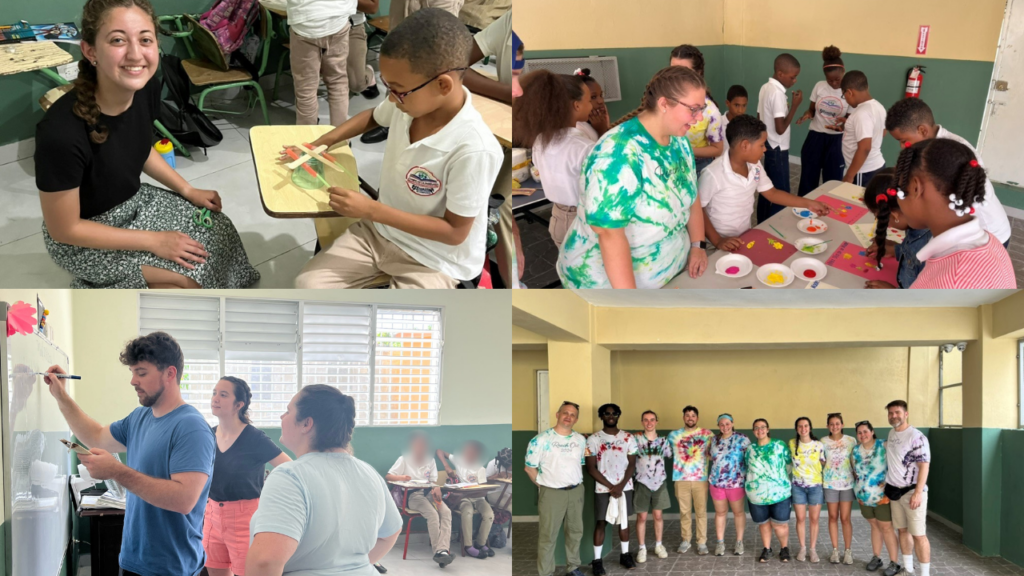
Ship students engaging with students at the Caminos de la Enseñanzain in Santo Domingo.
Department of Geography-Earth Science, Chile
This past May, Paul Marr in the Geography and Earth Science Department led his student to northern Chile. They arrived at the port city of Iquique and traveled throughout the coastal mountains all the way to the Atacama Desert – the driest desert in the world. Students spent a week learning about the history of the desert and its environment, mapping ancient petroglyph rock art, and visiting both historic and prehistoric ruins.
Then, students traveled to the Andes foothills to the dry Puna, where civilians live at elevations ranging from 12,000 to 15,00 feet above sea level, while the mountains and volcanoes in this region reach over 20,000 feet. While there, students learned about the natural resources, culture of the region, and worked on a wetland restoration project in an indigenous Aymaran community – supporting a local environmental non-profit and Chilean university students. During their time in the Andes, Marr and students stayed with a host family in the Aymara village of Cariquima.
“For our students this was truly a ‘once-in-a-lifetime’ experience in a unique part of the world that sees very few visitors,” said Marr.
- Students taking water quality samples at a altiplano wetland.
- Students examining prehistoric petroglyphs in the Tarapaca valley. Petroglyphs are a type of prehistoric rock art.
- A wetland (bofadel) used for grazing llamas and alpacas
- Dr. Claire Jantz, Lauren Wolford, Rebecca Wenschhof, and Senora Eulogia Quispe (our host). ‘Las Chicas de Cariquima’. Sra. Eulogia dressed them up in local costumes.
Department of Geography-Earth Science, Ghana
Dr. Joseph Zume, professor of geography and earth science, led a group of five students to Cape Coast, Ghana, as part of a three-year National Science Foundation (NSF) grant. The students, from four different US universities, conducted research on water quality, sanitation, and climate change alongside University of Cape Coast students. They also mentored local high school students. This NSF grant will continue for two more years, with plans to bring more students to Ghana for hands-on research.
“It is incredibly gratifying to be counted amongst NSF grant awardees nationally,” Zume said.
Students conducted research on water quality, sanitation, and climate change alongside the University of Cape Coast graduate students. They also mentored local high school students, assisting them with field research.
The NSF grant will continue for two more years, with plans to bring more students to Ghana for hands-on research.
“It is incredibly gratifying to be counted amongst NSF grant awardees nationally. The success rate with NSF grants is less than 10 percent, and this is my second award out of three attempts, so I feel very blessed,” Zume expressed.
- Akwaaba walkway in Kakum National Park
- Kotoka International Airport in Accra, Ghana
- Students collecting water well samples in Cape Coast, Ghana
- Students conducting research on water quality in Cape Coast, Ghana
College of Business, Europe
John L. Grove College of Business faculty member, Dr. Robert Stephens, took Ship MBA students on a trip to Europe this summer – the 16th MBA study abroad trip at Shippensburg University.
Six students traveled throughout various parts of Europe, starting in London, UK where they toured the Houses of Parliament. Then, they flew to Italy and visited the University of Macerata, one of the oldest universities in the entire world (founded in 1290). At the university, Stephens held joint lectures with Professor Ernesto Tavoletti and Ship students worked with Macerata students to give presentations on a wine industry case. Students went to visit winery di Genesio, and toured the production, research and development facilities. The study abroad group also met with the management team of Simonelli Group, a maker of high-end espresso machines.
Moving along, the group traveled to Brussels, Belgium to tour the European Parliament in addition to participating in research on the Belgian chocolate industry, including visits to five artisan chocolate producers.
The group’s final stop was in Paris, where they went on a bike tour of the city and met with the founders of Bike About Tours and Le Peloton Cafe – who discussed with them the opportunities and difficulties for expats doing business in France
- Chocolate tour in Brussels, Belgium
- Presentations with students at the University of Macerata, Italy
- Tour of the Houses of Parliament in London
- Jardin des Plantes in Paris
Department of Global Languages and Cultures, France
This past May, Dr. Blandine Mitaut, professor of global languages, led a 17-day student abroad trip through northern France. Ship students visited Burgundy, Alsace, Normandy and Paris. In each location, they explored French history, art and, culture. Some of the major highlights included the honoring of WWII hero Captain Joseph Giacobello, a former Ship student, in Hellimer, visiting the European Parliament in Strasbourg and witnessing the preparation for the 2024 Olympics in Paris.
“At each stop, the group immersed themselves in the architectural, culinary, and folkloric traditions that define France’s rich diversity, gaining a deeper understanding of this country’s multifaceted heritage. The research projects that students developed from this immersive experience will be presented at Minds@Work in 2025”, Blandine shared.
- Honorary ceremony in memory of SU alum and US Army Captain Joseph Giacobello, organized by Guy Reichert, the president of Gates of Memory, located in Hellimer.
- Downtown Dijon, Place du Bareuzai.
- the scriptorium dedicated to the worship of the goddess Sequana at the Archeology Museum in Dijon
- Flavigny-sur-Ozerain, in the Carolingian crypt of a former Benedictine abbey, dating back to the 8th century

